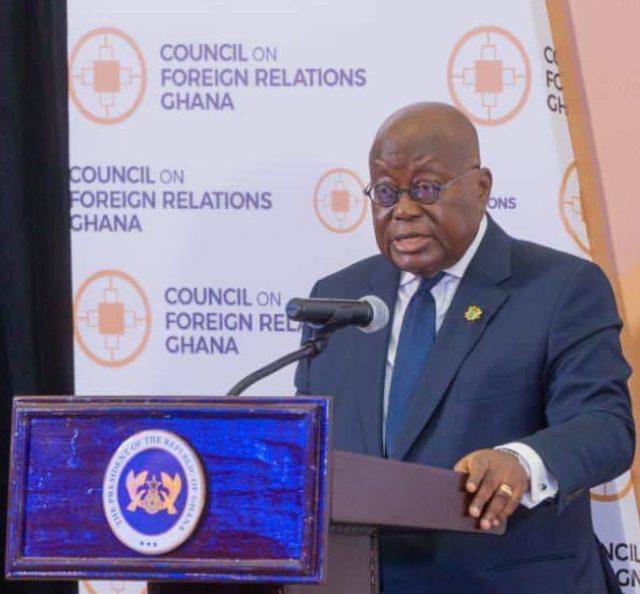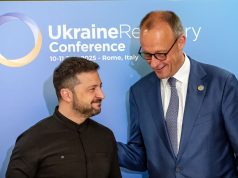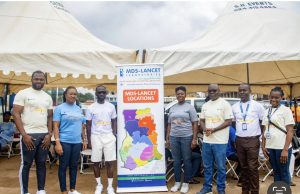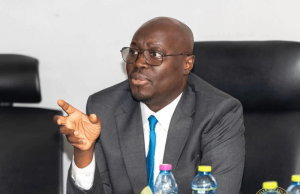President Nana Addo Dankwa Akufo-Addo has called for a review of the existing development cooperation framework between Africa and its international partners focusing on areas that inured to the continent’s growth.
The current framework, he said, was fraught with its own limitations, a situation that did not allow Africa to wean itself of donor support in the execution of development projects for the wellbeing of the people.
The President, delivering a paper at the Fifth Anniversary Lecture Series of the Council on Foreign Relations (CFR)-Ghana, in Accra, advocated a new paradigm for development cooperation.
“To achieve the continent’s transformation, it is imperative to target structural reforms that address the root cause of underdevelopment, and champion its inclusive growth, which are primarily the continuing reliance of our economies on raw materials production and export.
“While aid has supported the continent to meet some immediate needs and development projects, it has also created a dependency syndrome that undermines domestic ownership and self-reliance,” he stated.
Africa continued to face numerous challenges that hindered her prospects for transformational change, he bemoaned, citing the high levels of poverty, inequality, unemployment, and underdeveloped infrastructure.
The President said tackling the root cause of the continent’s slow pace of development, in spite of its abundant resources and prospects, ought to take centre stage in the search for a more vibrant cooperation.
While short term projects and requirements were necessary for immediate needs, they did not necessarily lead to long-term sustainable development, he cautioned.
The continent, he said, must strive to amplify domestic resource mobilisation, entrepreneurship, advancement in technology and innovation, as well as creating an enabling environment for indigenous private sector investment.
Additionally, the continent ought to direct substantial investment towards improving educational and healthcare infrastructure, human capital growth, and digitalisation.
“By building resilient economies and solidifying domestic capacities, especially those of tax collection agencies, we can reduce dependency on aid and pave the way for sustainable development,” the President noted.
He said that process of prioritisation had taken on even greater urgency because of the emerging geopolitical climate in many nations of the Western world.
“Indeed, in several countries, aid budgets are being drastically reduced,” he noted, saying some populist governments had begun questioning and attacking traditional aid arrangements, some with racist undertones.
President Nana Akufo-Addo drew attention to another limitation of the current development cooperation framework relating to the fragmentation of aid efforts.
The multiplicity of donors, each with its own priorities, conditions and defaulting requirements, often led to duplication of efforts and inefficiencies, he stated.
That could result in a lack of coherence and coordination, impeding effectiveness for development interventions, he advised, and underlined the need for greater harmonisation and alignment of aid efforts.
“Donors and friends of Africa should work collaboratively with African governments to ensure that aid, if requested and granted, is delivered in a coordinated and coherent manner.
“This encompasses aligning aid with national development priorities, streamlining reporting mechanisms, and promoting neutral accountability. By instituting a more coordinated approach, we can maximise the impact of aid and achieve greater development outcomes,” he noted.
President Nana Akufo-Addo said another key component driving Africa’s search for a holistic development cooperation was the need for effective functioning and operationalisation of the African Continental Free Trade Area (AfCFTA) agreement, whose Secretariat is located in Ghana.
The agreement, he noted, presented the continent with the opportunity to drive inclusive growth and industrialisation, as such, its implementation should be given utmost importance.
Source: GNA


















